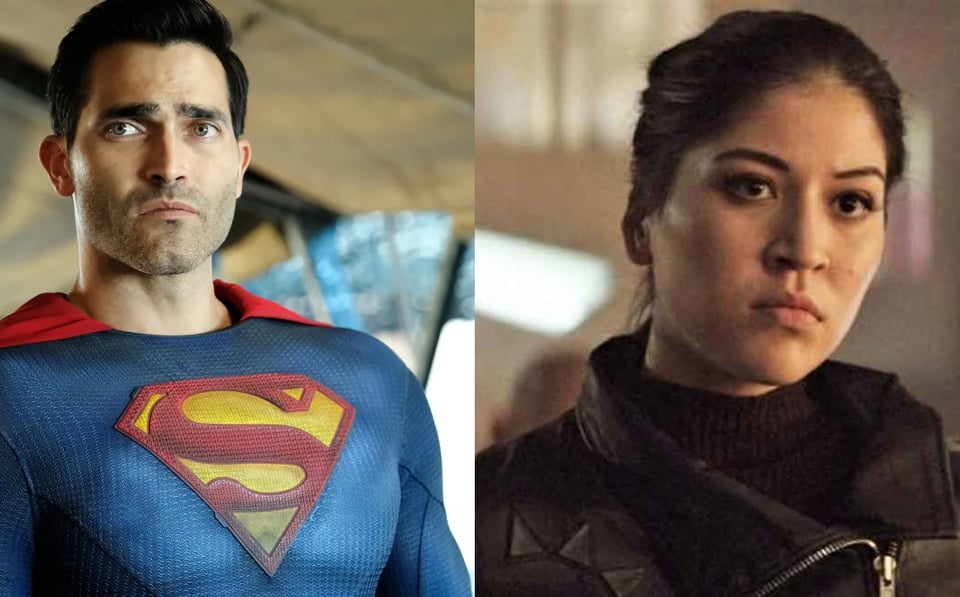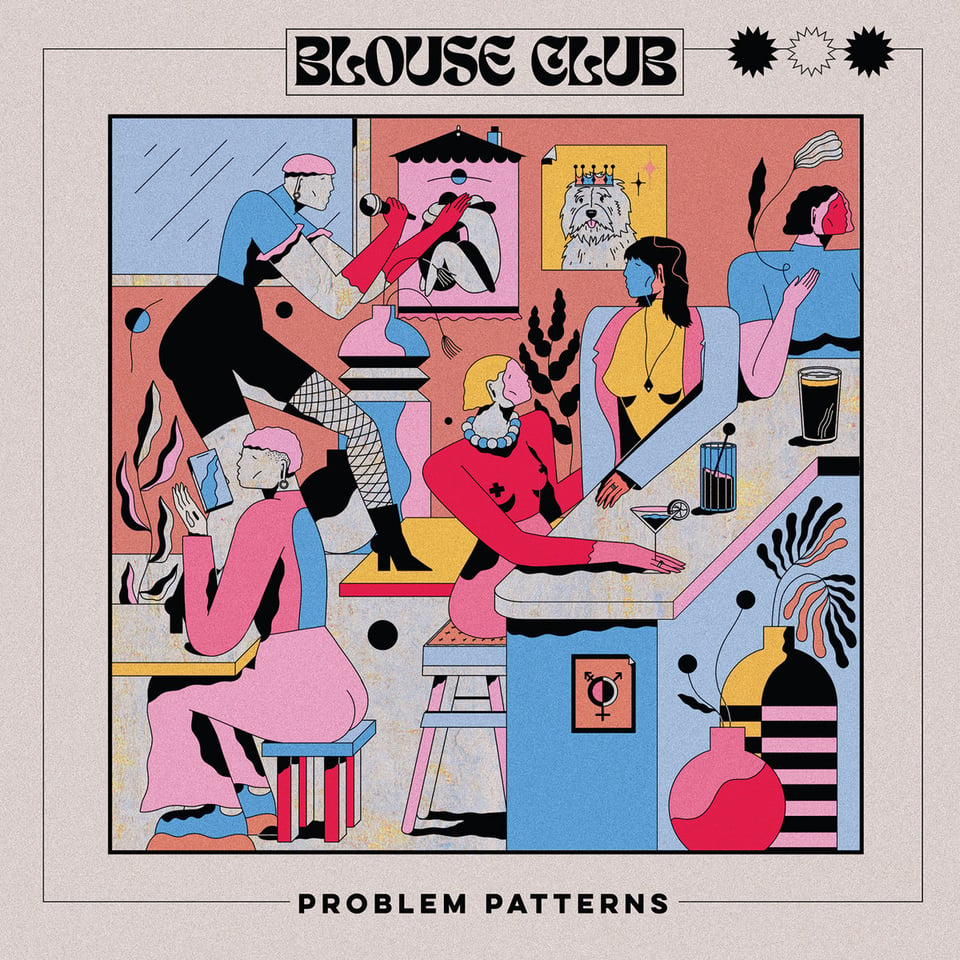The Lesson That Superhero TV Shows Keep Learning

Two pieces of news struck me recently.
First, Superman and Lois is ending with its upcoming fourth season. This bums me out, because I love that show. Tyler Hoechlin is the best live action Superman since Christopher Reeve, and this show zeroes in on exactly who Superman really is: a nurturing father figure, and an actual family man. I'm a little nervous about the final season, because this show's excellent supporting cast has been downgraded from regulars to "possibly making appearances," purely due to budgetary constraints. Overall, I'm sad to see this wonderful show disappear.
Meanwhile, Marvel will put a new banner called "Marvel Spotlight" on its upcoming TV show Echo. This label signifies that Echo has only loose connections to the increasingly byzantine continuity of the Marvel Cinematic Universe, and you don't need to have watched a thousand hours of live-action Marvel content to understand what's going on. I'm not entirely clear as to what this really means: is Echo canon in the MCU, or not? I guess we'll find out.
The thing that unites these two pieces of news is the issue of whether TV shows should be tied into sprawling multimedia universes.
Superman and Lois was twice removed from wider DC continuity. First, it started as part of the Arrowverse, which held itself apart from the DC movies at the time, including Zack Snyder's DCEU. (Which is why both Tyler Hoechlin and Henry Cavill could be playing Supes.) Then, by its second season, Superman and Lois was also making clear that it did not take place in the Arrowverse after all, which freed it to ignore everything that the Supergirl TV show had established, including an entire city of Kryptonians. This move also freed S&L to reinvent Lex Luthor somewhat drastically. The Echo news, on the other hand, seems to indicate a similar desire to make a TV show that is not quite so beholden to a massive interconnected saga.
I feel like studios keep learning the same lesson over and over again: shared universes are great for movies, under the right circumstances — but they tend to drag TV shows down a bit, over time. And a TV show that exists in the same universe as movies will always be secondary at best to the bigger budget, higher-stakes films. At worst, TV shows that tie in with movies will tend to become glorified bonus material for fans of the film franchise.
The classic example, of course, is Marvel's Agents of SHIELD. During its first season, MAOS worked strenuously to associate itself with the larger MCU continuity, to the point where storylines were unable to advance until the movie Captain America: Civil War had come out. As soon as Agents of SHIELD was cut loose from Marvel continuity, it became the best superhero to show on TV at the time, and one of the best superhero shows of all time. Agent Carter, on the other hand, had no choice but to contradict the Marvel short of the same name, because it was telling a bigger and more nuanced story about Peggy Carter's rise to super-spy superstardom.
The Arrowverse was utterly brilliant, and I miss it every day. There is literally nothing on the air like Legends of Tomorrow, Batwoman, Black Lightning, or Supergirl, and we are all poorer as a result. I loved (most of) the occasional crossovers between the different Arrowverse shows, but mostly what I adored was the vibe that these shows had: melodramatic, unabashedly whimsical, full of ludicrous plot twists. We'll never have shows like these again, because they were so much a product of The CW as it was before it was sold off and remade into the home of FBoy Island.
And yet, I understand perfectly why Superman and Lois had to leave the Arrowverse behind. Batwoman and Supergirl were never going to clash all that much, because they took place in very different worlds: Batwoman didn't need to feature much Kryptonian stuff, and Supergirl wasn't about to mess around on Batman's turf. Superman and Lois occupied exactly the same slice of DC Comics as Supergirl, so everything Supergirl established about Krypton and related topics affected this loose spin-off. You could see how this was going to become a straitjacket narratively, plus a lot of people who watch Superman and Lois have probably never seen Supergirl and shouldn't need to have a deep knowledge of Kara Danvers' adventures to appreciate Clark and Lois'.
TV shows are different from movies — even though some TV shows have tried in recent years to be a single extra-long movie carved up into episodic segments. Even a very serialized TV show will burn through plot after plot after plot, just to keep things interesting. A phrase I heard a lot during my stint in a couple of writers rooms was, "TV eats story for breakfast," and it's really true. You might think you have enough twists and turns and situations to fill out a whole season of TV, but you often burn through them faster than you thought you might. Now imagine trying to feed that ravenous beast while avoiding any storylines that might be too similar to a recent or upcoming movie in the same universe. (I honestly can't.)
If a TV show feels as though everything is just building toward the big battle in the season finale, that's probably not a fun TV show to watch -- but that's a perfectly good format for a movie.
For me, the pleasure of a TV show is getting to spend more time with the characters, and seeing how they change over time and how their relationships evolve. Plunging the characters into different extreme situations, one after the other, is a way to stress-test their characters and force them to grow and learn about themselves. Where a movie might give a character one fairly legible arc, a TV show might take them to all kinds of places, letting them play the hero, the villain, the fool and the lover all in a row.
(Side note: I admire Doctor Who's commitment to completely revamping its canon, including the Doctor's origins, based on whatever will make an interesting story at the time. I'm not being sarcastic here -- I genuinely think this is one of the show's strengths. Case in point: Peter Capaldi's era established that the real reason the Doctor left Gallifrey is because of a prophecy about an immortal "Hybrid" that the Time Lords were freaked out about. I don't expect this ever to be mentioned again on TV, though I guess you never know.)
So I guess what I'm saying is that TV shows and movies have different uses for plot devices and different uses for story structures, and when you try to force them to share the same toybox, it inevitably gets messy.
Probably a huge part of the problem is just that the needs of movies will always come first: they have a much longer lead time and have to hit a single release date, and you can't change a movie's plot to fit something cool that the writers of a TV show set in the same universe came up with after an especially spicy lunch. A movie might have a $250 million budget and the fate of in-person moviegoing riding on its success, so making a movie work is always going to be more important.
But as someone who loves superheroes on TV more than anything, I really hope we're finally moving away from the idea of TV shows as supplemental content to fill the gaps between big tentpole films.
Music I Love Right Now
Problem Patterns is a feminist punk band from Belfast, and I've been a huge fan since I stumbled on their music a couple years ago. (It doesn't hurt that they recorded the best anti-TERF song I've ever heard.) At long last, they've released their first full-length album, Blouse Club, and I am obsessed. The vibe of this album is very much summed up by the title of one of its songs, "Big Shouty." If you're in any way upset by, I dunno, the book bans and the attacks on women's healthcare and trans rights and a dozen other things in our domestic politics right now, this music is for you. And if you like their album, I strongly encourage you to also pick up their incredible EP, Good For You, Aren't You Great?

My Stuff
Along with Maggie Tokuda-Hall and Jackie Risley, I help to organize a regular event called the Bookstore and Chocolate Crawl. Basically, we get some peeps together to walk around a neighborhood visiting bookstores, and we eat chocolate between stores. Our first post-COVID event is on Saturday Nov. 18 on Valencia Street, and details are here.
I wrote a YA space opera trilogy about queer kids who save the galaxy, and it would make me so happy if you bought it and shared it with your peeps. The first two books, Victories Greater Than Death and Promises Stronger Than Darkness, both won Locus Awards and were nominated for the Andre Norton and Lodestar awards respectively. The third book, Promises Stronger Than Darkness, came out in April.
I'm reviewing science fiction and fantasy books for the Washington Post, and you can read all my reviews here. My roundup of the best books of the year should be out pretty soon, and it'll be at that link.
The latest episode of the podcast Our Opinions Are Correct, which I co-host with Annalee Newitz, contains our final thoughts about Silicon Valley's inability to understand science fiction, which we've done a series of episodes about. And we interview the incredible Dr. Joy Buolamwini, founder of the Algorithmic Justice League.
You can already order New Mutants Vol. 4, and you can pre-order New Mutants: Lethal Legion. These contain most of the saga of Escapade, the trans mutant superhero I co-created for Marvel. (To read Escapade's debut, you need to hunt down the 2022 pride issue.)
I'm still very proud of Never Say You Can't Survive, the book I wrote about using creative writing to get through tough times. And my short story collection, Even Greater Mistakes.
